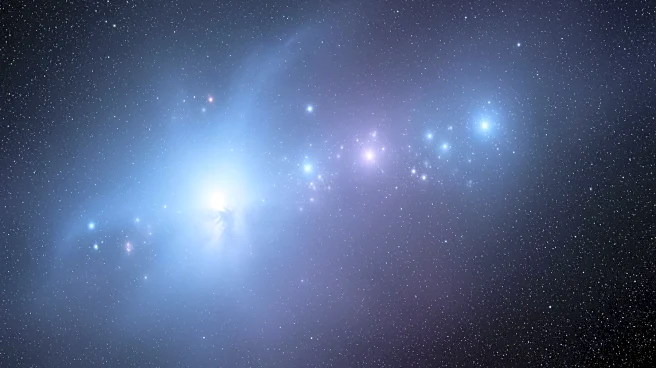What's Happening?
A study by 175 astronomers has revealed that the universe is experiencing a decline in star formation, leading to a colder and darker future. Using data from the European Space Agency's Euclid space telescope and Herschel satellite, researchers analyzed
2.6 million galaxies, finding that dust temperatures have decreased over billions of years. This decline in temperature indicates reduced star formation, as hotter dust is associated with active star creation.
Why It's Important?
The findings suggest that the universe is past its peak of star formation, which has implications for the future of cosmic evolution. As stars play a crucial role in the formation of planets and the distribution of elements, their decline could affect the potential for life and the development of new celestial bodies. The study provides insight into the long-term trajectory of the universe, emphasizing the need for continued research into cosmic phenomena.
What's Next?
Researchers will continue to analyze data from space observatories to monitor changes in star formation and dust temperatures. Future missions may focus on understanding the mechanisms behind the decline and exploring potential solutions to mitigate its impact. The study may also inspire new theories about the universe's evolution and the factors influencing star formation.
Beyond the Headlines
The decline in star formation raises philosophical questions about the universe's fate and humanity's place within it. It challenges scientists to consider the broader implications of cosmic changes and the potential for discovering new phenomena that could alter our understanding of the universe.
















